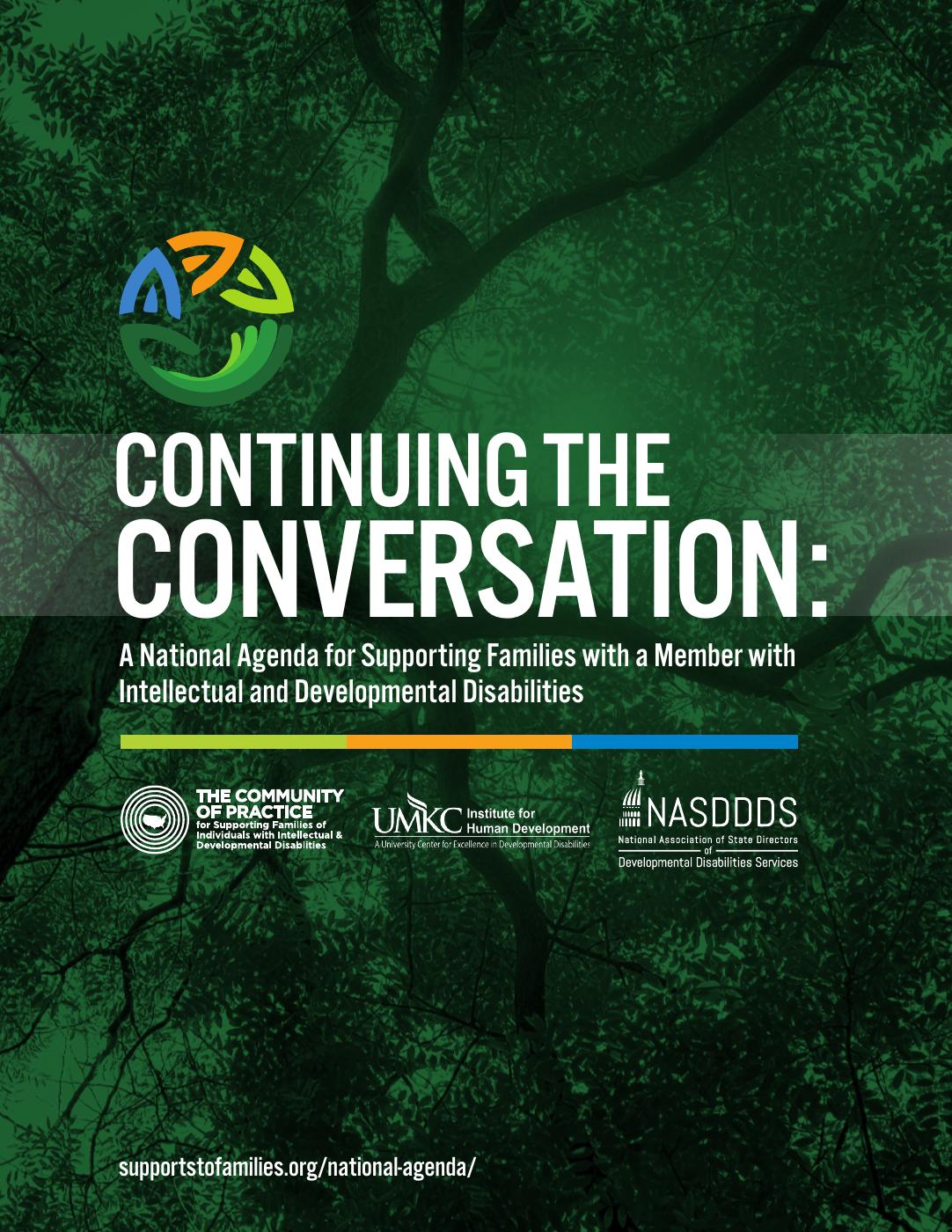2022 Agenda
Grounded in the belief that every person has the right to live, love, learn, work, and thrive in their community.
In May of 2022, the National Community of Practice for Supporting Families (CoP), supported by the Administration on Community Living (ACL), hosted an in-person Supporting Families Summit in Washington, D.C. to build on the momentum and continue the efforts of the Virtual Celebration.
Building Momentum
Introduction:
In May of 2022, the National Community of Practice for Supporting Families (CoP), supported by the Administration on Community Living (ACL), hosted an in-person Supporting Families Summit in Washington, D.C. to build on the momentum and continue the efforts of the Virtual Celebration.
The Summit brought together key partners in the supporting families movement to explore the current landscape of supporting families initiatives, develop common definitions and vision for
the work, and identify existing and needed policies and practices for enhancing supports to families across the lifespan.
Representatives were selected based on their lived experience and their ability to represent others with lived experience and/or a local, state, or national initiative for supporting families. Representatives include those with knowledge about grassroots efforts, promising and best practices, state and federal policies, and key research considerations for supporting families. In total, 69 attendees from 49 different organizations and 29 different states participated in the Summit.
Summit Summary:
The Summit reestablished the emphasis of intellectual and developmental disabilities as invaluable parts of the human experience that contribute to the richness of our communities.
A Vision for All Families
As the panelists underscored, developing a common understanding of the definition of family is critical to the discussion of supporting families. It was agreed among participants that family is more than a legal or biological/genetic construct and should be defined by the person. Family should be understood as those with mutual and reciprocal connections and that are marked by such characteristics as:
- Commitment and trust—the ability to rely on, count on, and/or depend on each other.
- Unconditional love—”fiercely care about each other.”
- Support—believing in each other and supporting each other’s goals and dreams.
- Sense of safety—ability to be authentically oneself, to tell the truth.
- Sense of teamwork—problem-solving and working together.
- Respect—listening to and honoring each other and encouraging self-determination.
- History and shared experience—being a part of each other’s lives.
Click on the image above to read the 2022 Summit Report Online
2022 Recommendations
Use the blue “toggle” arrows below to open each section and explore the 2022 Summit recommendations.
Recommendation 1
Establish a fluid, expansive—yet universal—definition of family that is driven by the person and can incorporate the many complex, unique iterations of the networks of mutual and reciprocal supports we call “family.”
Recommendation 2
Operationalize “family support,” with a common understanding of what that entails, to create consistent, clear and funded services that are responsive to the needs of all family members and their (potentially multi-faceted) role(s).
Recommendation 3
Design and fund peer support as a critical service, including state specific funding for Family Support Programs.
Recommendation 4
Redesign waiver services and supports to focus on quality-of-life outcomes, increase flexibilities, improve access and navigation, and ensure self-determination and self-direction while also balancing the need to support the family.
Recommendation 5
Develop more effective “front doors” that provide lifespan support, include life exploration and focus on outcomes.
Recommendation 6
Ensure meaningful leadership roles of people and families with lived experience by professionalizing family and self-advocate roles and increasing mechanisms for capacity building and preparing organizations and systems to appreciate family leadership.
Recommendation 7
Fund and support a National Training, Research, and Resource Center for Family Support, to serve as an infrastructure for sharing resources and best practices, and to provide ongoing technical assistance and support for family organizations, state systems, and federal programs.
Recommendation 8
Create a national, interagency task force on supporting families of people with ID/DD for research, funding, and advocacy.
A collaboration between the Community of Practice for Supporting Families, University of Missouri Kansas City Institute for Human Development (UMKC-IHD) and
the National Association of State Directors of Developmental Disabilities Services (NASDDDS)

